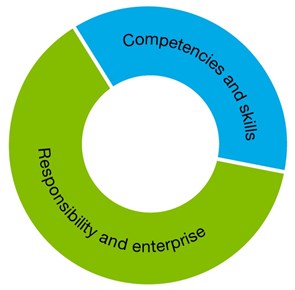The Intercultural Understanding capability has a role in developing consumer and financial literacy in young people. Intercultural understanding is an essential part of living and interacting with others in the diverse world of the 21st century. It assists young people to become responsible local and global citizens, equipped for living and working together in an interconnected world. The Intercultural Understanding capability contributes to the development of the dimensions of consumer and financial literacy as shown in the diagram below.

Approximate proportion of the dimensions addressed by Intercultural Understanding
Through this capability, students learn about the variable and changing nature of culture and appreciate how personal, group and national identities are shaped. Students develop a deep understanding of the actions of individuals and groups in specific situations, such as the influence of identities and culture on consumer and financial choices. They learn to value their own cultural perspectives and practices and those of others while taking responsibility for their own behaviours and their interactions within and across cultures. The Intercultural Understanding capability cultivates values and dispositions that support responsible consumer and financial decision-making such as care, empathy, respect and responsibility.
Moneysmart for teachers and Tax, Super and You provide a number of interdisciplinary units and interactive activities that include aspects of the Intercultural Understanding capability.






